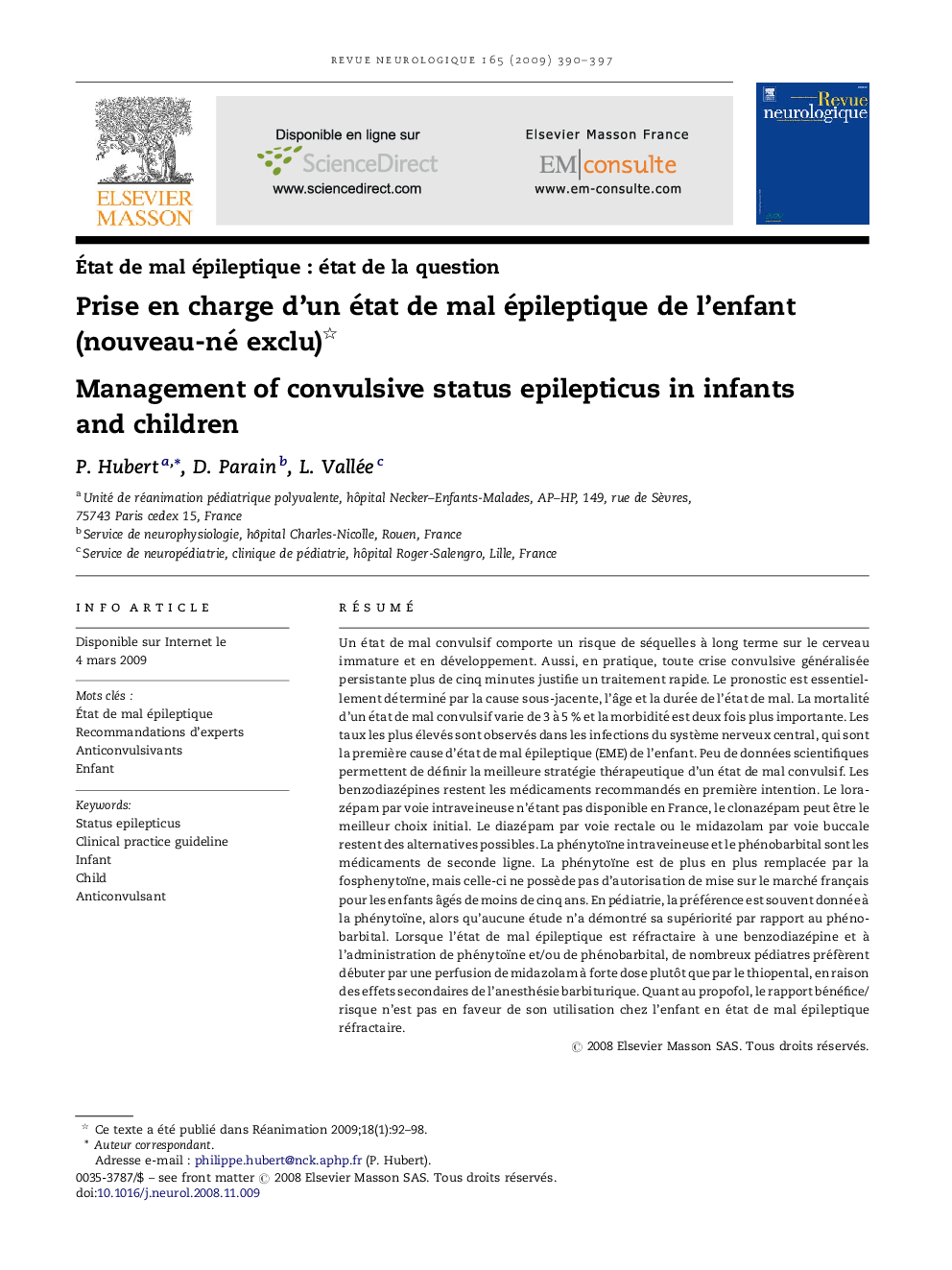| کد مقاله | کد نشریه | سال انتشار | مقاله انگلیسی | نسخه تمام متن |
|---|---|---|---|---|
| 3089723 | 1190236 | 2009 | 8 صفحه PDF | دانلود رایگان |
عنوان انگلیسی مقاله ISI
Prise en charge d'un état de mal épileptique de l'enfant (nouveau-né exclu)
دانلود مقاله + سفارش ترجمه
دانلود مقاله ISI انگلیسی
رایگان برای ایرانیان
کلمات کلیدی
موضوعات مرتبط
علوم زیستی و بیوفناوری
علم عصب شناسی
عصب شناسی
پیش نمایش صفحه اول مقاله

چکیده انگلیسی
Convulsive status epilepticus in childhood is a life threatening condition with serious risk of neurological sequelae which constitutes a medical emergency. Clinical and experimental data suggest that prolonged seizures can have immediate and long-term adverse consequences on the immature and developing brain. So the child who presents with a continuous generalized convulsive seizure lasting greater than five minutes should be promptly treated. The outcome is mainly determined by the underlying etiology, age and duration of status epilepticus. In children the mortality from status epilepticus ranges from 3 to 5% and the morbidity is two-fold higher. Mortality and morbidity are highest with status epilepticus associated with central nervous system infections, which is the most important cause of status epilepticus. There are few evidence-based data to guide management decisions for the child with status epilepticus. Immediate goals are stabilization of airways, breathing and circulation and termination of seizures. Benzodiazepines remain the first-line drugs recommended for prompt termination of seizures. As intravenous lorazepam is not available in France, we suggest clonazepam as the best choice for initial therapy. Rectal diazepam or buccal midazolam remain important options. Intravenous phenytoin/fosphenytoin and phenobarbital are the second-line drugs. Phenytoin is being increasingly substituted by fosphenytoin, but pediatric data are scarce and fosphenytoin is not authorized for use in France below five years old. In children, phenytoin is often preferred to phenobarbital, even though no comparative studies have demonstrated a better efficacy. To manage status epilepticus refractory to a benzodiazepine and administration of phenytoin and/or phenobarbital, many pediatricians today prefer high-dose midazolam infusion rather than thiopental to minimize serious side effects from barbiturate anesthesia. There is no benefit/risk ratio to support the use of propofol for children with refractory status epilepticus.
ناشر
Database: Elsevier - ScienceDirect (ساینس دایرکت)
Journal: Revue Neurologique - Volume 165, Issue 4, April 2009, Pages 390-397
Journal: Revue Neurologique - Volume 165, Issue 4, April 2009, Pages 390-397
نویسندگان
P. Hubert, D. Parain, L. Vallée,